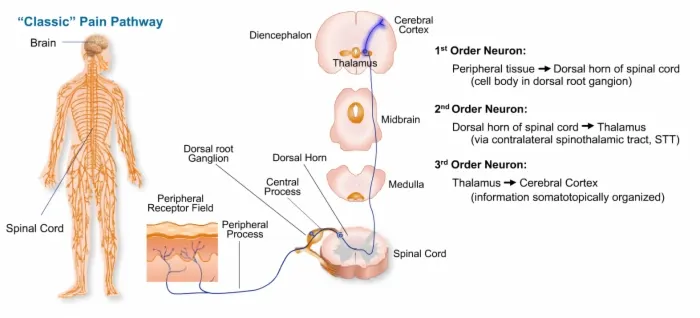Why Do We Feel Pain?

An agonizing pain because of a severe headache, an upset stomach, a pulled muscle from a stiffed neck – why do we feel pain?
Evidently, each of us respond to pain differently. What may be excruciatingly painful to one person can be only slightly uncomfortable to another.
According to studies, because pain messages pass through the emotional and thinking regions of our brain, our experience of pain is shaped not just by the physical damage or sensation, but by psychological, emotional and social factors as well. Our memories of past painful experiences, genetics, long-term health problems, coping strategies, and attitude towards pain can all contribute to how you feel pain.
The Physiology of Pain
In essence, pain is the manner our brain interprets information about a particular sensation that our body is undergoing. Information or signals about an aching sensation is sent via nerve pathways to our brain by specialized nerve cells known as nociceptors, or pain receptors. When these signals enter the brain they are processed and interpreted by identifying any dangers of ongoing damage and then interprets the severity of pain we feel.
Once the brain has received and interpreted the pain message, it coordinates an appropriate response. The brain can send a signal back to the spinal cord and nerves to increase or decrease the severity of pain.
For example, the brain can signal the release of natural painkillers known as endorphins. Alternately, the brain can direct the release of neurotransmitters that enhance pain or hormones that stimulate the immune system to respond to an injury. Recent research has shown that people possess differing amounts of these neurotransmitters, possibly explaining why some people experience pain more intensely than others. Furthermore, recent studies have found that genetic makeup can influence an individual’s sensitivity to pain.

Secrets of Pain Management



